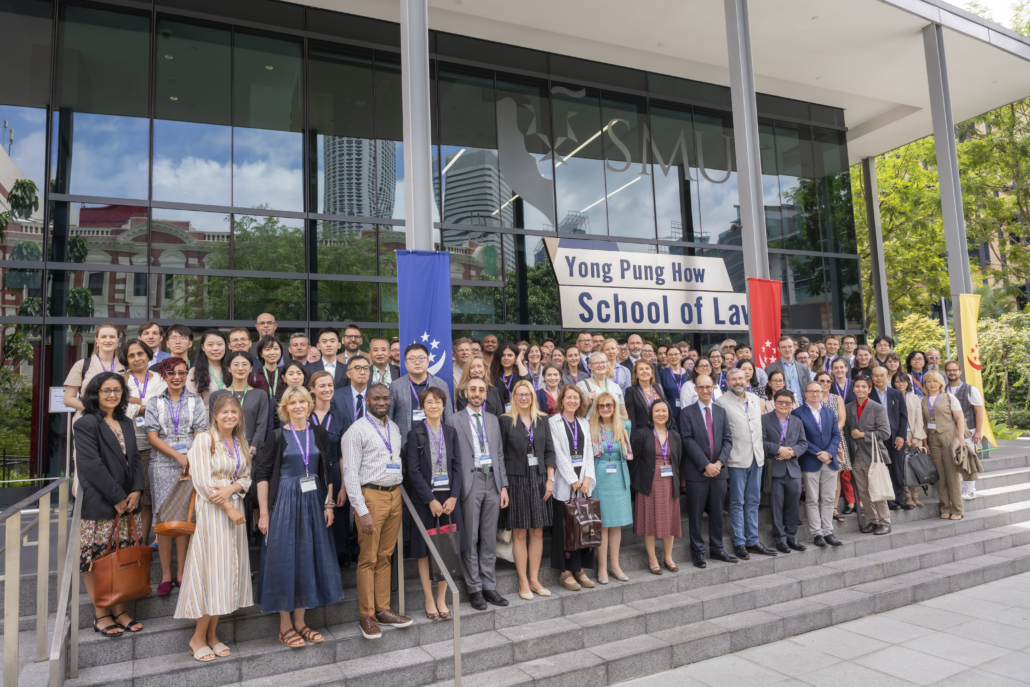Views
Mbatha v. Cutting: Implications for Litigants of Indian Origin
Guest Post by Chytanya S. Agarwal*
I. Introduction
Rising cross-border migration of people and concomitant increase in lawsuits relating to matrimonial disputes between couples brings to the forefront the issue of conflict of jurisdictional laws (219th Law Commission Report, ¶1.1-¶1.2). Mbatha v. Cutting is one such recent case that grapples with conflict of laws pertaining to divorce and division of matrimonial property when the spouses are domiciled in separate jurisdictions. In this case, the Georgian Court of Appeal dealt with competing claims from a couple who married in New York and had their matrimonial domicile in South Africa. The wife, domiciled in Georgia, USA, argued for the application of the matrimonial property regime of South Africa – their only (though temporary) common matrimonial domicile. In determining the applicable law, the Court upheld the traditional approach, which favours lex situs for real property and lex domicilii for personal property.
Views and News from the 9th Journal of Private International Law Conference 2023 in Singapore
Four years after the 8th JPIL conference in Munich, the global community of PIL scholars finally got another opportunity to exchange thoughts and ideas, this time at Singapore Management University on the kind invitation of our co-editor Adeline Chong.

The conference was kicked off by a keynote speech by Justice Philip Jeyaretnam (Singapore International Commercial Court), providing an in-depth analysis of the Court of Appeal’s decision in Anupam Mittal v Westbridge Ventures II [2023] SGCA 1 (discussed in more detail here).
The keynote was followed by a total of 23 panels and four plenary sessions, a selection of which is summarised below by our editors.
The EU Sustainability Directive and Jurisdiction
The Draft for a Corporate Sustainable Due Diligence Directive currently contains no rules on jurisdiction. This creates inconsistencies between the scope of application of the Draft Directive and existing jurisdictional law, both on the EU level and on the domestic level, and can lead to an enforcement gap: EU companies may be able to escape the existing EU jurisdiction; non-EU companies may even not be subject to such jurisdiction. Effectivity requires closing that gap, and we propose ways in which this could be achieved.
(authored by Ralf Michaels and Antonia. Sommerfeld and crossposted at https://eapil.org/)
- The Proposal for a Directive on Corporate Sustainability Due Diligence
The process towards an EU Corporate Sustainability Due Diligence Directive is gaining momentum. The EU Commission published a long awaited Proposal for a Directive on Corporate Sustainability Due Diligence (CSDDD), COM(2022) 71 final, on 23 February 2022; the EU Council adopted its negotiation position on 1 December 2022; and now, the EU Parliament has suggested amendments to this Draft Directive on 1 June 2023. The EU Parliament has thereby backed the compromise textreached by its legal affairs committee on 25 April 2023. This sets off the trilogue between representatives of the Parliament, the Council and the Commission.
News
ELI Extra-Judicial Administration of Justice: 14 February in Vienna
The European Law Institute (ELI) Extra-Judicial Administration of Justice in Cross-Border Family and Succession Matters project is organising its dissemination conference in Vienna on 14 February. At this all-day event (9.00 to 18.00) experts will present their country reports, comparative findings and policy recommendations, in order to discuss these with the audience.
The project investigated the phenomenon that family and succession law matters are increasingly submitted to other authorities than courts. It seeks a to establish a harmonised concept of “courts” in the EU, taking into account the CJEU case law.
More information and the registration form are available on the ELI website.
Virtual Workshop (in English) on February 4: Pietro Franzina on “EU Private International Law at a Time of ‘Broken Multilateralism’ and Growing Geo-Political Tensions”

On Tuesday, February 4, 2025, the Hamburg Max Planck Institute will host its monthly virtual workshop Current Research in Private International Law at 11:00 a.m. – 12:30 p.m. (CET). Professor Pietro Franzina (Catholic University of the Sacred Heart) will speak, in English, about the topic
“EU Private International Law at a Time of ‘Broken Multilateralism’ and Growing Geo-Political Tensions”
Multilateralism is in crisis. The role of world organisations in international politics and law-making is increasingly being questioned, as some key actors in the global arena no longer consider cooperation and collective action the best way to address common concerns. While multilateralism is not obsolete, let alone ‘dead’, as some claim, there is a growing consensus that current governance schemes need profound reconsideration. The EU, multilateralism’s staunchest defender, is especially exposed to these developments. While the evolution of multilateralism is set to affect all areas of international cooperation, each field has, arguably, its specificities. What features does cooperation in the field of private international law display in this regard? How can the crisis of multilateralism influence the way in which the EU deals with judicial cooperation, be it through its legislation, in the relations with its neighbours and at the global level? What structural changes are under way in global fora, such as the HCCH, and what is their impact on the EU’s own agenda and methods of work?
The presentation will be followed by open discussion. All are welcome. More information and sign-up here.
If you want to be invited to these events in the future, please write to veranstaltungen@mpipriv.de.
Out now: Buxbaum, “Extraterritoriality in Comparative Perspective” (Ius Comparatum)
In an increasingly interconnected world, the application of laws by States beyond their territorial borders is an everyday reality. Yet, almost a century after the (still) leading findings by the PCIJ in the Case of the S.S. “Lotus”, the details of the concept of “extraterritoriality” remain elusive, and one can easily get lost in the multitude of national practices, ranging from “presumptions against extraterritoriality” to be found mostly in federal systems (mostly for sub-units) to “effects doctrines” and the like in certain areas of law such as e.g. (early) in Germany, (later) in the EU’s competition law and today many other jurisdictions, in particular in Asia.
Given this complexity, this latest publication of the Ius Comparatum Series on “Extraterritoriality in Comparative Perspective” edited by Hannah L. Buxbaum offers a great deal of valuable guidance and insights. Featuring the reports from the most recent IACL/AIDC General Congress in Asunción, the volume provides the reader with unique insights by renowned legal scholars into the practices of 14 national jurisdictions (inter alia China, Germany, Japan, Korea, UK, U.S.) and the the European Union (EU). As is explained in the preface to the book:
Much of the vast scholarly literature on extraterritoriality approaches the topic from the outside in, assessing the extraterritorial projection of state law from the perspective of international law and the constraints it places on state authority. The goal of this project is to approach the topic from the inside out. Considering a range of legal systems, the authors investigate the geographic scope that states claim for their own laws, and the mechanisms by which states translate and locally implement principles of international jurisdictional law.



